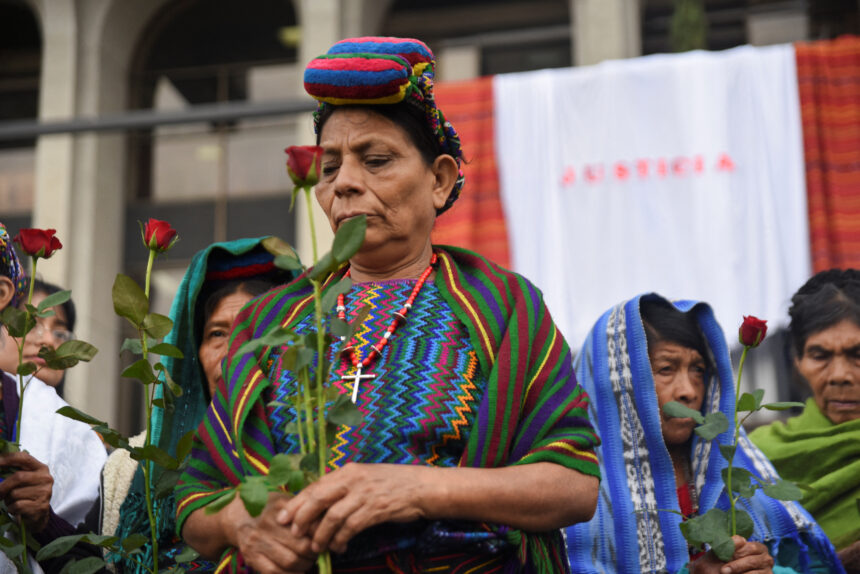Introduction
In a watershed moment for Maya Achi rape trial survivors, Guatemala’s Supreme Court on May 30, 2025, handed down 40-year prison sentences to three former paramilitaries. These men, once members of the Civil Self-Defense Patrol (Patrullas de Autodefensa Civil), were convicted of raping six Maya Achi women between 1981 and 1983—during the most violent phase of Guatemala’s decades-long civil war. Their sentencing underscores the ongoing struggle for justice and recognition of crimes against humanity committed against indigenous communities.

Background: Civil War and the Maya Achi Community
Between 1960 and 1996, Guatemala endured a brutal internal conflict that led to over 200,000 deaths and disappearances. Indigenous groups—especially the Maya Achi—bore the brunt of counter-insurgency campaigns led by the military and allied militias. From 1981 to 1983, the Civil Self-Defense Patrol was authorized by the army to “protect” villages, but in practice, many patrol members perpetrated systematic violence against their own communities. According to human rights organizations, thousands of Maya Achi men, women, and children were tortured, forcibly disappeared, or raped during that bloodiest period.
Key Details of the Maya Achi Rape Trial
- Defendants: Three former Civil Self-Defense Patrol members were tried for raping six Maya Achi women in separate incidents between 1981 and 1983.
- Prosecution Evidence: Prosecutors presented over 160 pieces of evidence, including forensic reports, historical deposits of military orders, and testimonial statements from survivors.
- Survivor Testimony: In court, Maya Achi survivor Paulina Ixpata described how soldiers “arrived late at night, threw me onto the ground and raped me” repeatedly over a 25-day ordeal. Her courage in recounting these crimes helped secure convictions.
- Legal Charges: The three defendants were found guilty of crimes against humanity—in particular, wartime sexual violence—an important legal classification that elevates these atrocities beyond ordinary criminal rape.
- Sentence: Each former paramilitary received a 40-year prison term, reflecting both the gravity of systematic sexual violence and Guatemala’s evolving jurisprudence on wartime rape.
Why This Ruling Matters
This conviction represents the second Maya Achi case in Guatemala’s courts. In January 2022, five former patrol members were handed 30-year sentences for raping 15 Q’eqchi Maya women at the Sepur Zarco military base. Those landmark convictions were the first time Guatemalan military officers were prosecuted for wartime sexual slavery. Today’s 40-year sentences mark continued progress:
- Recognition of Crimes Against Humanity: By classifying these acts as crimes against humanity, the court acknowledges that sexual violence in war is not incidental—but an organized tactic of genocide and oppression.
- Indigenous Justice: The Maya Achi verdict showcases the resilience of indigenous women advocating for accountability, supported by organizations like Human Rights Watch and UN Women’s Guatemala office.
- International Precedent: The Maya Achi rape trial bolsters international norms on prosecuting sexual violence. It echoes decisions from the International Criminal Court, which classifies rape as a crime against humanity (ICC).
- Reparations Program: The court mandated a reparations program for victims, although progress remains slow. The “Grandmothers of Sepur Zarco”—15 Q’eqchi women previously imprisoned for forced labor—continue to pressure authorities for comprehensive reparations and land rights.
Survivors’ Struggle and Testimonies
Survivor testimonies played a crucial role. Paulina Ixpata, one of the six convicted-case survivors, detailed her 25 days of captivity under armed patrol members. Other Maya Achi women gave graphic accounts of gang rape, beatings, and threats of death if they reported the crimes to authorities. Their voices highlighted:
- Community Impact: Entire villages were terrorized; farming, hunting, and social life ground to a halt under patrol rule.
- Psychological Trauma: Many survivors still suffer from post-traumatic stress disorder, depression, and stigmatization within their own communities.
- Cultural Resilience: Despite intimidation, Maya Achi elders organized Mayan blessing ceremonies outside the Supreme Court in Guatemala City to invoke justice through their ancestral rituals.
Comparative Context: Sepur Zarco Case
In 2016, a Guatemalan court convicted two military officers for holding 15 Q’eqchi women as sexual slaves at Sepur Zarco base, sentencing them to a combined 360 years. That verdict set a precedent for prosecuting wartime rape. The Maya Achi trial builds on this legacy:
- Legal Evolution: Guatemala’s Constitutional Court and civil tribunals have steadily expanded definitions of gender-based crimes, aligning national law with international human rights standards.
- Grassroots Advocacy: Indigenous organizations (for example, the UN Indigenous Peoples’ Rights framework) and survivor coalitions have been instrumental in ensuring that wartime sexual violence cannot be erased from the historical record.

Challenges Ahead: Reparations and Reconciliation
Despite convictions, obstacles remain. The court’s reparations program has been slow, with bureaucratic delays, scarce funding, and limited community outreach hindering survivors’ ability to access healthcare, counseling, and land restitution. Key challenges include:
- Resource Allocation: Guatemala’s government allocates minimal budget to reparations. Many survivors cannot afford travel to administrative centers to claim benefits.
- Land Rights Disputes: Some Maya Achi communities still lack title to traditional lands seized during the war. Without land security, cultural practices and collective identity stay under threat.
- Stigmatization: Survivors often face social stigma in their own villages. Local leaders occasionally discourage public testimony, fearing economic or political backlash.
What’s Next?
With three more ex-paramilitaries now serving 40-year sentences, Guatemala’s justice system is sending a strong message: wartime sexual violence will not go unpunished. However, to transform condemnation into lasting change, the following steps are critical:
- Accelerate Reparations: The government, in collaboration with NGOs like UN Office of the High Commissioner for Human Rights, must fast-track medical, psychological, and economic support for Maya Achi survivors.
- Land Titling and Protection: Secure communal land titles for Maya Achi villages to preserve cultural heritage and provide economic stability, reducing the risk of future displacement.
- Education and Awareness: Expand educational programs in schools and rural communities about the history of the civil war, gender-based violence, and indigenous rights.
- Regional Collaboration: Neighboring countries should share best practices on prosecuting wartime sexual violence, drawing lessons from Colombia, Peru, and Rwanda’s gacaca court system.
Conclusion
The Maya Achi rape trial sentencing marks a watershed for Guatemala’s legal system and indigenous rights. By handing down 40-year sentences, the court has recognized that heinous acts committed under state-sanctioned militias constitute crimes against humanity. Yet, justice is not fully realized until survivors obtain reparations, psychological care, and land security. As the families of the Maya Achi women continue their advocacy, the world watches whether Guatemala can turn these landmark verdicts into concrete healing and reconciliation.
Read more about the History of Guatemala’s Civil War









